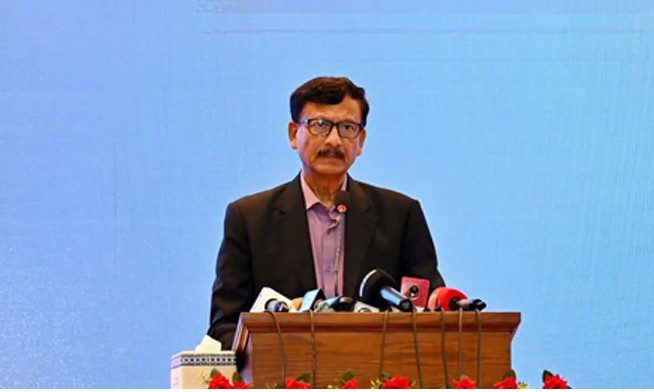Bangladesh has firmly told the United States that lasting peace in Myanmar will remain elusive unless the Rohingya crisis is resolved — an issue that continues to place a heavy burden on Bangladesh.
Foreign Affairs Adviser Touhid Hossain made the remarks on Friday while briefing media about his recent meetings with senior US officials visiting Dhaka.
On Thursday, Hossain met with Nicole Ann Chulick, Deputy Assistant Secretary of the US Bureau of South and Central Asian Affairs, and Andrew R Herrup, Deputy Assistant Secretary of the Bureau of East Asian and Pacific Affairs.
The two sides held extensive discussions, with the Rohingya crisis featuring prominently.
To underscore the seriousness of the issue, the US administration also dispatched its chargé d’affaires to Myanmar to join the meetings in Dhaka.
Bangladesh currently shelters over 1 million Rohingya refugees in overcrowded camps, most of whom fled Myanmar’s Rakhine State in 2017 following a brutal military crackdown.
Despite repeated attempts by Dhaka to facilitate repatriation, Myanmar’s military regime has shown little willingness to cooperate.
Ongoing internal conflict between the junta and various ethnic and political groups has further complicated the prospects for their safe and dignified return.
Speaking about the situation, Hossain said, “Even if the war ends in Myanmar, peace will not return unless the Rohingya issue is resolved. I conveyed this very clearly.”
Bangladeshi is now dealing with a new reality — a neighbor that is no longer a unified state actor but fragmented and driven by non-state groups.
“We cannot fully engage with them, nor can we simply disregard them. It’s a deeply complex scenario,” he said stressing that any future resolution must be supported by international partners.
“When the situation begins to stabilize, powerful countries and friendly nations must apply pressure on whoever is in power in Myanmar to treat the Rohingya with humanity and restore their rights,” he said.
Beyond the Rohingya issue, the meetings also touched on bilateral trade. Hossain said Dhaka had raised concerns about recent US tariffs and highlighted ongoing efforts to reduce trade barriers.
“I pointed out that the perceived trade gap between the two countries is often overstated,” he added. “Our imports from the US, particularly in the services sector, are substantial but frequently overlooked.”


